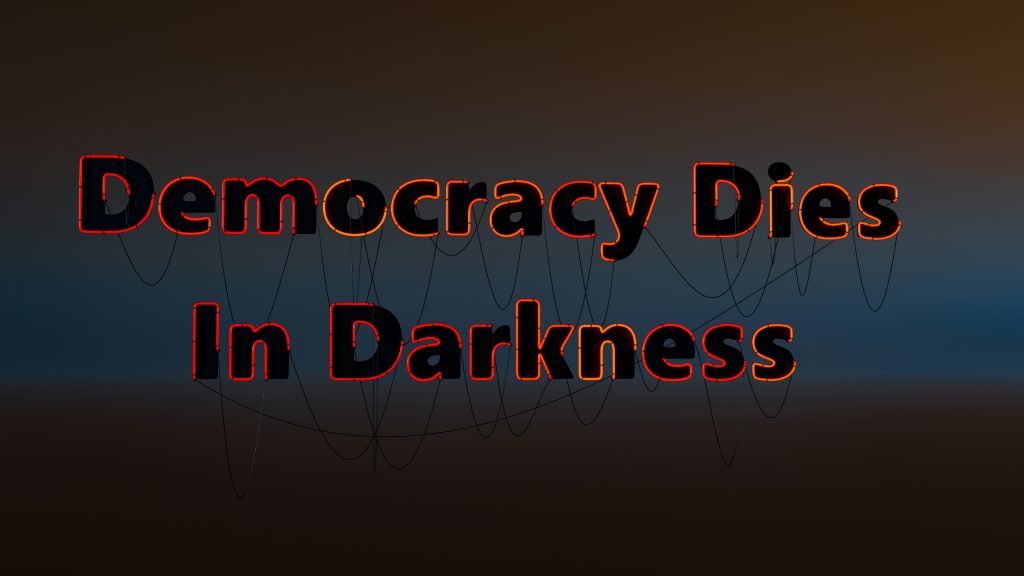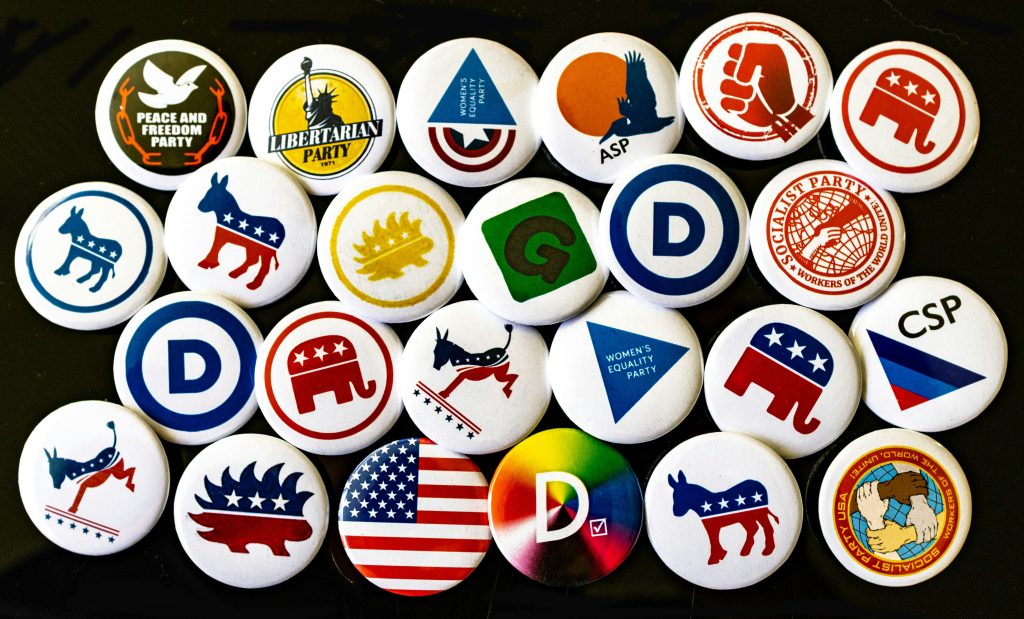Empowering Voices: The Crucial Role of Voting in Local Elections
As the nation gears up for the 2024 presidential election, the spotlight is once again on the significance of voting, particularly in local contests where every single ballot can tip the scales. History has repeatedly shown that outcomes can be determined by razor-thin margins, making it imperative that every eligible voter participates in the democratic process. The act of voting is not merely a civic duty; it is a powerful tool for change that can shape the future of communities.
Reflecting on the personal journey of voting, many individuals recount the lessons passed down through generations. For instance, the story of a young child learning about the importance of voting from their mother highlights the lengths to which families go to ensure their voices are heard. Despite obstacles such as lack of transportation, the determination to reach the polls exemplifies the commitment to democracy that many Americans hold dear. In this case, taking a bus to cast a vote symbolizes not just participation, but a resilience that fuels the democratic spirit.
Moreover, the conversation around voting rights is more relevant than ever, especially as we acknowledge the historical struggles faced by marginalized groups. The work of scholars and activists has paved the way for greater access to the ballot for Black Americans and other minorities. The ongoing dialogue about voting rights and representation is crucial as we approach a pivotal election year. As we look ahead, it is essential to reflect on how far we’ve come and the work that still lies ahead to ensure that every voice is represented.
In an interesting twist, a recent survey posed a whimsical question to Americans: how would fictional characters from beloved movies, TV shows, and literature vote in the upcoming election? This light-hearted inquiry serves to remind us of the cultural significance of voting and how it permeates our lives in various forms. It emphasizes that voting is not just a political act but a reflection of our values and beliefs as a society.
As we prepare to head to the polls, let us remember that each vote counts. Whether you are casting your ballot for the first time or have been a lifelong voter, your participation is vital. Engage in conversations about the issues that matter to you, educate yourself about the candidates, and make a plan to ensure your voice is heard. The power of voting lies in its ability to bring about change, and it is the responsibility of every citizen to wield that power wisely.
As we move forward into this election cycle, it is crucial to continue advocating for free and fair elections while addressing barriers that still exist for certain communities. The road to voting rights is ongoing, and it is a collective effort that requires vigilance and dedication. Together, we can ensure that democracy remains a vibrant and accessible system for all.
In conclusion, voting is not just a right; it is a privilege that comes with the responsibility to engage actively in the democratic process. As we approach the 2024 presidential election, let us embrace the significance of our votes and the impact they can have on our communities and the nation as a whole. Every voice matters, and every vote counts. Make sure you know where to vote and prepare to make your mark in the upcoming election.
Tags: Election 2024, Voting Rights, Where to vote
Supreme Court Decisions Impact Voter Rights and Abortion Legislation
In a significant week for the U.S. judicial system, the Supreme Court has weighed in on two contentious issues: voter rights in Arizona and abortion legislation in Arkansas. The Supreme Court has granted a request from the Republican National Committee to reinforce a law in Arizona that mandates voters provide proof of U.S. citizenship when registering to vote. This ruling has sparked debates about voter suppression and the integrity of the electoral process. Critics argue that such requirements disproportionately affect minority groups and could hinder voter participation. Supporters, however, claim it is a necessary step to ensure secure elections and protect against fraud. Meanwhile, in Arkansas, the state Supreme Court upheld the rejection of signature petitions related to an abortion rights initiative that sought to be included on the November ballot. This decision effectively halts efforts to introduce a measure that would guarantee abortion access within 18 weeks of fertilization. The court sided with the Secretary of State, who argued that the initiative’s backers failed to meet the necessary legal requirements for petition submission. This ruling has reignited discussions about reproductive rights in the state, where access to abortion services has been increasingly restricted. These rulings reflect the ongoing tensions in the U.S. regarding voting rights and reproductive health, as various states grapple with legislation that could significantly shape the lives of their citizens. As the political landscape continues to evolve, the implications of these decisions will be felt far beyond their immediate contexts, influencing future elections and legislative measures across the nation.
Tags: abortion rights, Legislation, Supreme Court, Voting Rights
Senate Majority Leader Chuck Schumer Eyes Filibuster Changes to Advance Voting Rights
In a bold move signaling a shift in Democratic strategy, Senate Majority Leader Chuck Schumer has expressed his intent to modify the Senate’s 60-vote filibuster rule to facilitate the passage of significant voting rights legislation. This announcement comes amidst a backdrop of heightened enthusiasm among party members, as Schumer noted the palpable excitement and unity observed at a recent convention, which he described as unprecedented in his experience.
Traveling nearly 800 miles from his Brooklyn base, Schumer was welcomed with open arms by supporters who shared his vision for a more equitable electoral process. The urgency of his remarks was underscored by discussions surrounding the rising tide of antisemitism in the United States, a topic he passionately addressed alongside Second Gentleman Doug Emhoff. Their dialogue highlighted the broader implications of societal challenges facing minority communities, particularly in the context of election integrity and civil rights.
As Democrats grapple with fluctuating voter enthusiasm and disheartening poll numbers, Schumer’s strategy represents a critical pivot aimed at revitalizing the party’s standing ahead of the 2024 elections. By advocating for changes to the filibuster, he aims to eliminate obstacles that have historically hindered the advancement of crucial legislation, particularly those aimed at protecting voting rights.
The potential alteration of the filibuster rule marks a significant escalation in the Democratic agenda, as Schumer seeks to harness the momentum generated by grassroots support and increased civic engagement. The urgency of these reforms is clear, as the party aims to address not only the immediate concerns of voter access but also the long-term implications of political disenfranchisement.
In the wake of President Biden’s administration facing challenges in maintaining voter enthusiasm, Schumer’s remarks signal a renewed commitment to galvanizing support and fostering a sense of urgency among constituents. The Democrats’ strategy moving forward will likely hinge on their ability to unify around these core issues and effectively communicate the importance of voting rights to the electorate.
As the political landscape continues to evolve, Schumer’s leadership will be pivotal in determining the Democratic Party’s success in 2024. His willingness to contemplate significant changes to longstanding Senate rules could very well redefine the legislative process moving forward. As the stakes rise, the focus will undoubtedly be on the ability of the party to navigate these changes while rallying support from a diverse coalition of voters.
Tags: Chuck Schumer, Filibuster Reform, Voting Rights
Senate Majority Leader Advocates for Voting Rights Amidst Political Challenges
In a pivotal moment for the Democratic Party, Senate Majority Leader Chuck Schumer has set his sights on revising the 60-vote filibuster rule to facilitate the passage of significant voting rights legislation. Speaking at the Democratic National Convention in Chicago, Schumer emphasized the urgency of expanding access to the ballot for all Americans, highlighting a pressing need to counteract the rising tide of voter suppression across the country. This move marks a strategic shift for Democrats, who have faced declining voter enthusiasm and troubling poll numbers in recent months.
The proposed changes to the filibuster could pave the way for two major bills aimed at safeguarding and expanding voting rights. Schumer’s advocacy comes at a time when many Democrats are grappling with concerns over the future of democracy in the U.S. The Senate Majority Leader’s remarks resonated with party members and supporters alike, as he called for unity and action in the face of mounting challenges.
At the convention, Schumer was met with an enthusiastic crowd, further bolstering his message of hope and determination. He praised the efforts of Senate Democrats, acknowledging their commitment to advancing critical legislation despite the obstacles presented by the current political landscape.
Moreover, Schumer did not shy away from addressing the alarming rise of antisemitism in the U.S., urging Americans to take a stand against hate and division. He underscored the importance of voting in the upcoming elections, framing it as a crucial step toward ensuring a brighter future for the nation.
As the political climate continues to evolve, Schumer’s focus on voting rights reflects a broader strategy by Democrats to reinvigorate their base and mobilize support ahead of the elections. The urgency of his message serves as a rallying cry for Democrats, who are looking to reclaim momentum in a challenging environment.
In conclusion, the Senate Majority Leader’s push for filibuster reform and voting rights legislation highlights a critical juncture for the Democratic Party as they seek to navigate the complexities of American politics. With the stakes higher than ever, Schumer’s leadership may prove vital in shaping the future of democracy in the United States.
Tags: Chuck Schumer, Filibuster Reform, Voting Rights




